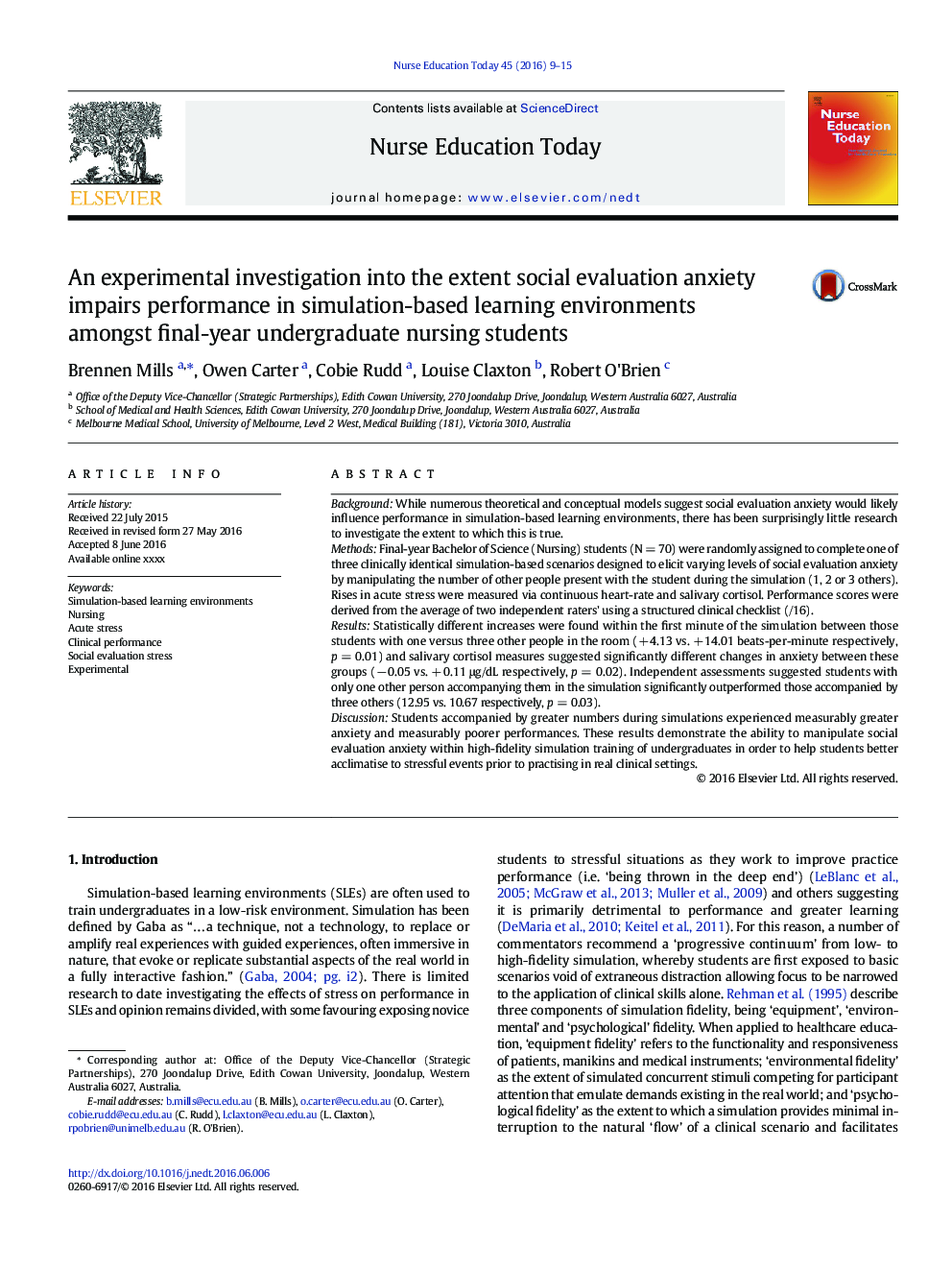| کد مقاله | کد نشریه | سال انتشار | مقاله انگلیسی | نسخه تمام متن |
|---|---|---|---|---|
| 367789 | 621543 | 2016 | 7 صفحه PDF | دانلود رایگان |
• Social evaluation stress can negatively impact on clinical performance.
• Stress is likely prominent amongst novice students with limited authentic exposures.
• Potential patient safety implications
• Early exposure to realistic clinical situations may acclimatise students.
• High-fidelity simulation provides this without risk to patients.
BackgroundWhile numerous theoretical and conceptual models suggest social evaluation anxiety would likely influence performance in simulation-based learning environments, there has been surprisingly little research to investigate the extent to which this is true.MethodsFinal-year Bachelor of Science (Nursing) students (N = 70) were randomly assigned to complete one of three clinically identical simulation-based scenarios designed to elicit varying levels of social evaluation anxiety by manipulating the number of other people present with the student during the simulation (1, 2 or 3 others). Rises in acute stress were measured via continuous heart-rate and salivary cortisol. Performance scores were derived from the average of two independent raters' using a structured clinical checklist (/16).ResultsStatistically different increases were found within the first minute of the simulation between those students with one versus three other people in the room (+ 4.13 vs. + 14.01 beats-per-minute respectively, p = 0.01) and salivary cortisol measures suggested significantly different changes in anxiety between these groups (− 0.05 vs. + 0.11 μg/dL respectively, p = 0.02). Independent assessments suggested students with only one other person accompanying them in the simulation significantly outperformed those accompanied by three others (12.95 vs. 10.67 respectively, p = 0.03).DiscussionStudents accompanied by greater numbers during simulations experienced measurably greater anxiety and measurably poorer performances. These results demonstrate the ability to manipulate social evaluation anxiety within high-fidelity simulation training of undergraduates in order to help students better acclimatise to stressful events prior to practising in real clinical settings.
Journal: Nurse Education Today - Volume 45, October 2016, Pages 9–15
